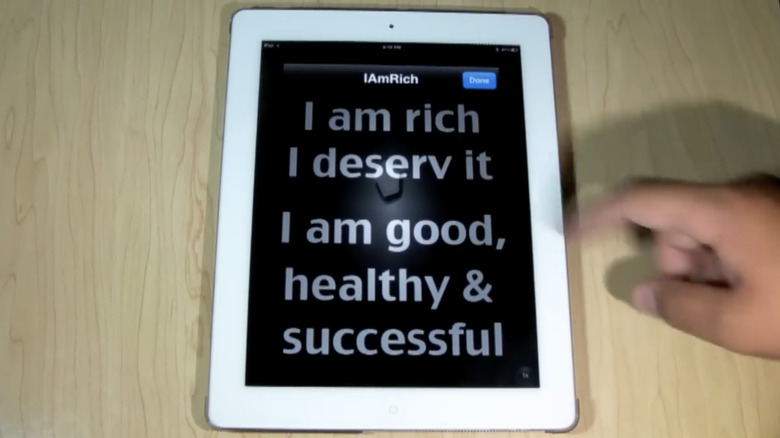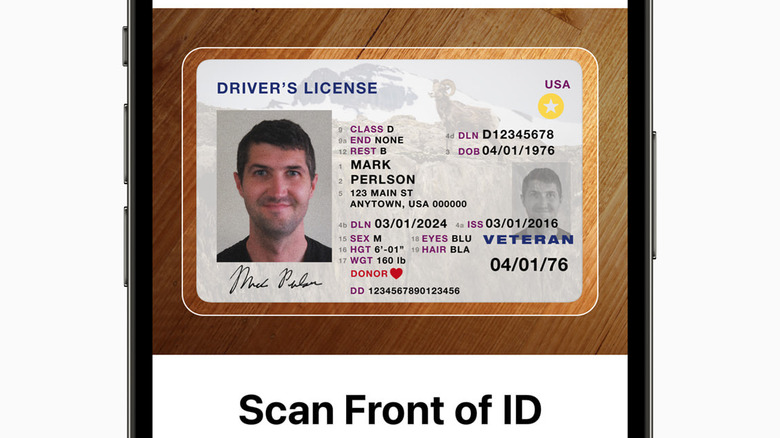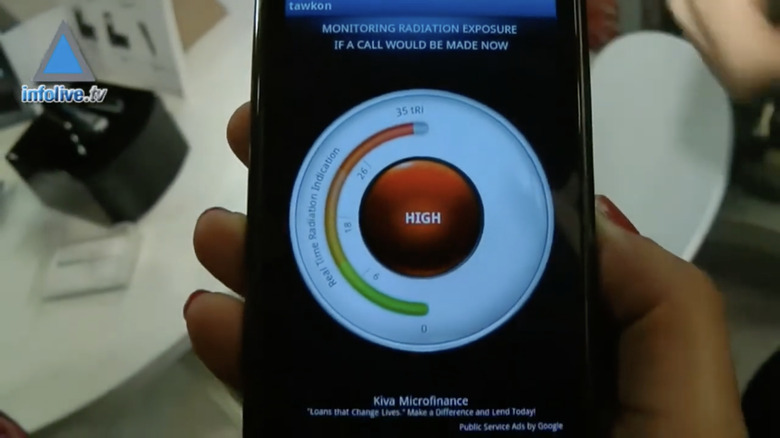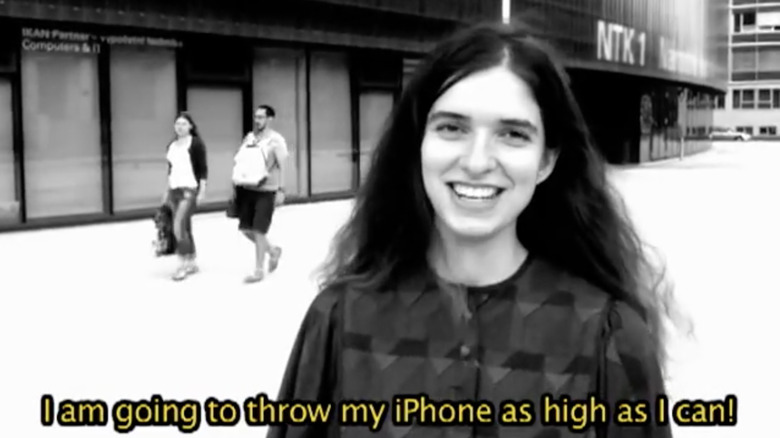The Strangest iPhone App Bans We've Ever Seen
Apps disappear from digital storefronts all the time for a variety of reasons. Developers may decide it's not in their best interest to continue support across new operating systems, a company might fall apart due to financial troubles, and so on. But sometimes it's for different reasons. Weirder reasons.
Here are five different apps that Apple saw fit to ax from the iOS App Store over the years, for a variety of reasons. Seriously, they run the gamut from intentional wastes of obscene amounts of money to inter-corporation personal beefs. Not all of the apps themselves are odd (though some are), and not all of them ever posed any real risk or threat to anyone. But they do all have one thing in common: You can't find them on the App Store anymore because of direct intervention from Apple. And it's highly unlikely that any of them are ever coming back.
Fortnite
While "Fortnite" itself isn't an inherently strange app — in as much as a game that lets Optimus Prime fight LEGO Luke Skywalker alongside Goku is a perfectly normal thing — the reason behind its removal from the iOS App Store is a bit irregular.
Most iPhone users were able to enjoy "Fortnite" without issue for a while, but then the lawsuit between Apple and Epic Games happened. By the time the dust settled on this lengthy legal battle, Apple banned Epic's moneymaker from all of its mobile devices in what many believe is an act of retribution.
There are other ways to play "Fortnite" on an iPhone thanks to game streaming services like cloud gaming via Xbox Game Pass, but the official Epic game app doesn't appear as though it'll be making its way back to the App Store any time soon — if ever. Until then, players will have to switch to another platform or find an internet service provider with very fast and stable speeds for streaming.
I Am Rich
"I Am Rich" was an odd app even for its day, which was way back when the App Store — and the mobile app market at large — was still trying to figure itself out. The app itself did nothing. Or at least almost nothing. Starting the app would display an image of a red gem on the screen and that's it. Tapping the gem would display a message that read, "I am rich, I deserv it, I am good, healthy & successful" — with no other functions or purpose.
A lack of, well, anything isn't what made "I Am Rich" the target of an Apple takedown, however. It was the price of $1,000 USD. For an app that does nothing except show a single image and display a few misspelled affirmations when you tap on it.
Perhaps strangest of all is the idea that the app was bought by eight people while it was still available, six of which opted to hang onto it after that initial $1,000 purchase. Though, whether or not they didn't ask Apple for a refund because they legitimately wanted to keep it or because they didn't know that was an option is unclear.
Driver's License
Apple's reasoning behind the banning of "Driver's License" isn't actually due to perceived competition, even though it is possible to save your license in your Apple Wallet if you live in a few particular U.S. states. No, "Driver's License" was shut down back in 2011 over more concerning real world applications.
Anyone using the app could take or import a photo and place it into a digital rendition of a driver's license from any U.S. state. Meaning, someone could create a phony I.D. fairly easily so the U.S. government took notice.
Of course, a digital image on a phone is no substitute for the physical card, which is itself loaded with verification tricks. The thing is, that's not much help in situations where just a photo of an I.D. is required. And most people who have worked in customer service jobs can probably imagine (or even recall) a scenario in which someone tried to use an image of a license as valid I.D. Fraud like this is the kind of thing nobody wants to mess around with, so of course Apple gave it the boot.
Tawkon Radiation Detector
The point of "Tawkon Radiation Detector" was to (allegedly) pool data from a number of iPhone sensors in an attempt to determine just how much radiation it was subjecting people to. The developer claimed that the app was able to determine a given phone's specific absorption rate (SAR), which measures the human body's absorption rate of radiofrequency energy. So of course Apple banned an app that might make its hardware look bad.
It's not some grand conspiracy where Apple is hiding a dangerous truth from the public, however. Yes, smartphones do emit radiation, but thus far there's been no evidence that the radiofrequency energy emitted by smartphones causes cancer — or any other health problems, for that matter. Also, yes, France did temporarily ban the iPhone 12 due to concerns about radiation, but the problem was the way its SAR testing protocols had changed, not that the iPhone 12 was some kind of pocket-sized demon core.
Send Me To Heaven
Despite the naming implications, "Send Me To Heaven" is actually a very simple game about getting a high score. While not loaded with malware or posing any kind of direct risk that might change your iPhone security settings, the app did pose a different kind of risk. Right up there with attempts to trick users into microwaving their devices, or the waterproofing hoax about iOS 7.
The app is meant to record the iPhone's maximum height, and compare the numbers with an online leaderboard. In other words, it tries to trick users into seeing who can toss their expensive smartphone into the air the highest. Maybe not technically an unavoidable risk if someone is certain of their abilities to catch it on the way down, but there was definitely lots of potential for people to smash their phones.
Which is all by design, as the app's developer admitted in a 2013 interview (via Wired) that the goal was to get people to break their phones. Despite having a surprisingly accurate handle on just how high an iPhone was being tossed, the app existed purely to cause destruction. And Apple was (understandably) not very happy about that.





